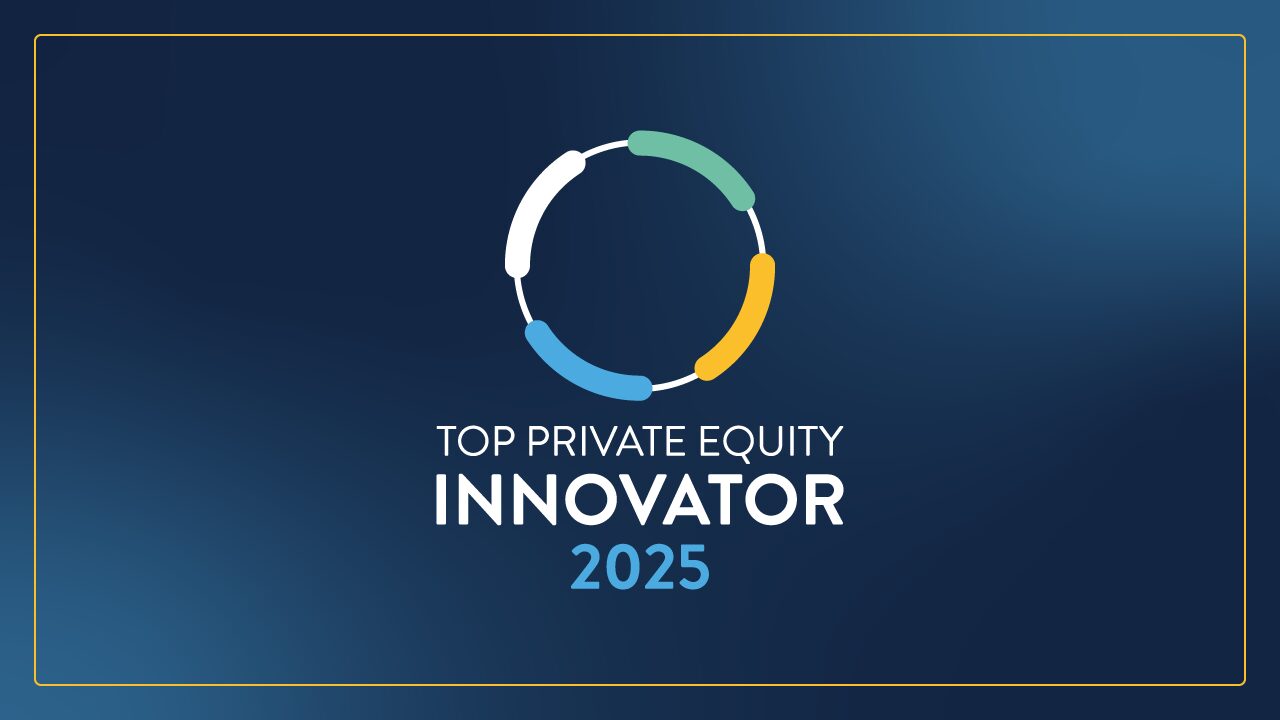An interim chief human resources officer can be a great asset to maximize a portco’s value.
They can help a business run more efficiently by evaluating existing HR processes and aligning them with business goals.
Whether going through an M&A, an internal crisis, a reorg or other situations that require a talent expert, here are some reasons private equity firms should consider temporary HR leaders.

Increase Efficiency and Effectiveness
A human capital leader has the opportunity to improve company operations for the short time they’ll be in their role. (Usually three to nine months.) Here are some ways they can do so.
Streamlining HR Processes
They can evaluate existing HR processes at a portfolio company, identify areas for improvement and implement changes to increase effectiveness. This may include automating repetitive tasks and standardizing processes across the organization.
For example: expediting a labor-intensive employee onboarding process with new software. They could also implement a standardized performance management system so that everyone understands how they’re evaluated.
CASE STUDY: Interim CHRO Leads Complex Carve-Out in Consumer Products Industry
Improving Data Management
Temporary CHROs can also collaborate with the tech team to improve data collection, storage and analysis. This makes it easier for management to make educated decisions.
One way they could do this is by creating dashboards accessible to managers. These, and other tools can streamline analysis relevant to growing the business.
Aligning HR with Business Goals
The human resources department’s objectives must also align with the portco’s goals.
Identifying and tracking KPIs – employee turnover rate, time to fill, employee engagement, DEI initiatives – is one way to do this.
The interim CHRO interview process is a great time to determine whether the person you want to hire works well across departments.
Reduce Employee Turnover, Increase Engagement
Conducting Exit Interviews
Exit interviews help managers understand why employees leave and identify what contributes to a high turnover rate. This information can be used to develop retention strategies and improve employee engagement.
Here are some of the questions an interim CHRO might ask a portco employee during an exit interview:
- What made you decide to leave the company?
- Is there anything you disliked about working here?
- Do you have any suggestions for how we can improve?
- How was your experience with your manager?
Creating Employee Retention Programs
Retention programs address the specific needs of employees, such as recognition programs, professional development and the ability to work from home, even in a hybrid situation.
Employees may also be more likely to stay if they have access to department-specific job training.
HR leaders can also use engagement surveys and focus groups to identify problems ahead of time.
Identifying Key Drivers of Employee Satisfaction
Speaking of surveys and focus groups, they not only tell HR leaders what’s going wrong but also tell them what employees like about a company. This information can help create targeted retention strategies and improve employee engagement.
Here are some of the top areas of employee satisfaction an interim chief human resources officer will want to pay attention to:
- Clear communication and transparency
- Opportunities for growth and development
- Work-life balance
- Recognition and rewards
Building a Positive Company Culture
Creating a positive company culture is no easy task, especially in the midst of a transition. That’s why it’s important to work with an interim CHRO experienced with tumultuous situations.
Besides paying attention to employee satisfaction, this person should be able to build consensus across teams.
“In a strong culture, employees feel valued,” according to Great Place To Work. “They enjoy at least some control over their jobs, instead of feeling powerless. Whether it’s by working from home, choosing their projects or trying out a new role, employees that feel valued and can make decisions achieve a higher level of performance.”
Providing Regular Feedback and Recognition
An interim CHRO can help managers to provide regular feedback and recognition to employees.
They can standardize feedback loops through surveys, one-on-one meetings, focus groups and other tactics. They should then be transparent about how they will use that information to improve the company.
It’s important to do this on a regular basis, and not as a one-off exercise.
Since this person will only be in their role for a few months, having monthly, bi-weekly or even weekly evaluations may make sense. Especially if they can develop a system that can be inherited by the person who will take on their role full-time.
READ MORE: Interim CHRO Interview: Identify the Right Fit
Compliance
An interim CHRO with experience in your industry can hit the ground running. Every business has a unique set of legal challenges, and you don’t want someone in the C-suite who has to learn on the job.
Here are some specific areas where a temporary CHRO can help with legal hurdles.
Reviewing and Updating Company Policies and Procedures
This ensures a company is compliant with all relevant laws and regulations, such as those related to labor, anti-discrimination and data privacy.
This should be done in collaboration with other executive team members as well as the legal team.
Conducting Compliance Audits
Compliance audits help identify areas of legal risk and recommend corrective actions.
The head of people can do this by developing an audit plan with a clear scope. They’ll then determine risks, gather evidence and analyze the information. In the end, they should prepare a report based on their findings.
They’ll also need to implement the plan quickly to minimize risks to the company.
Providing Training and Education
Another way to protect the company as well as equip employees is to educate them on compliance and labor laws.
Here are some resources an HR executive might use for this:
- Society for Human Resource Management
- The National Association of Corporate Directors
- The Human Resource Certification Institute
- The Department of Labor
- The National Labor Relations Board
Monitoring Changes in Laws and Regulations
This person should also be current on changes in laws and regulations. Company policies and procedures should then be updated accordingly.
Use the interim CHRO interview process to evaluate whether they have the knowledge to make an impact in this area from their first day.
M&A Integration
Developing and Implementing a Communication Plan
A comprehensive communication strategy informs employees about the transaction and its implications.
The head of HR may do this with a dedicated website, by holding town hall meetings or providing regular updates. They may also work with management to develop a Q&A document and establish an employee hotline.
Managing Cultural Integration
A seasoned executive will improve cross-company integration by addressing differences in culture, values and internal practices.
They do this with shared vision and values, aligning policies and procedures and promoting cross-functional collaboration.
Mary Anne Elliott, CHRO at Marsh, talked with HBR about the importance of working with other top executives on this.
“[These] meetings are a pragmatic activity. When you’re sitting with the CEO and CFO, there’s no place for academic HR,” she says. “It’s all about understanding what the organization needs to do to drive business performance and how to align those key variables.”
Assessing and Managing HR Risks
Some typical risks associated with a merger or acquisition are employee retention, legal compliance and benefits integration.
A capable temporary people leader will know how to do each of these things efficiently.
Coordinating Benefits and Compensation
Coordinating the integration of benefits and compensation packages for employees is also important.
Health insurance, retirement plans and stock options are just a few examples.
Reviewing existing benefits packages can help them identify gaps or redundancies.
Integrating HR Systems and Processes
Finally, an interim chief human resources officer can manage the integration of HR systems and processes such as payroll, performance management and employee data management.
The new, combined organization’s HR processes must be aligned with the needs of the business.
The IT department can help in this area by ensuring a smooth transition of data and systems.
Succession Planning
Identifying Key Roles and Critical Skill Sets
Some roles are more crucial to a company’s success. The interim CHRO should identify these and devise a strategy to make sure the right talent is in place if someone leaves.
They can also identify potential leaders within the company who lack professional development.
Conducting Talent Assessments
Internal assessments help identify high performers. Since these are the people most likely to leave for another opportunity, it’s worth investing time in their development.
By aligning these evaluations with company goals and leadership needs, the employees will be better equipped for a new role.
This will open the door for them to be promoted sooner as they grow within the company.
Creating Development Programs
An interim CHRO can design development programs to help high-potential employees acquire the skills and experience needed to take on leadership roles.
These are some ways they might do that:
- Rotational assignments
- Mentorship programs
- Professional development courses
- Cross-functional team assignments
Building a Talent Pipeline
While it’s important to foster talent internally, an interim CHRO can also establish an external talent pool. Outside hires often help the company by bringing a fresh perspective to a challenging situation.
Having a group of qualified candidates on standby also saves time in the hiring process.
At BluWave, we have a highly vetted group of candidates for private equity, portco and privately owned company needs on standby. That way, we can provide you with two or three exact-fit resources within a single business day.
Developing a Succession Plan
A comprehensive succession plan will not only focus on identifying, developing and retaining key talent, but also contingencies for unexpected departures.
Along with mentoring and coaching programs, regular performance reviews ensure that employees are ready to take on new roles when needed.
If your private equity firm or portco leader needs a human capital expert, BluWave has the world’s best temporary chief human resources officers on standby. And if you’re already in a talent role, we have tailor-made solutions to support you, too.
Everyone in our network has been rigorously evaluated while also receiving multiple recommendations from other leading PE firms.
CASE STUDY: Immediate HR Diligence Provider Needed
Reach out to set up your initial scoping call with our research and operations team, and we’ll provide you with two or three exact-fit candidates, no matter how urgent your need, within one business day.


